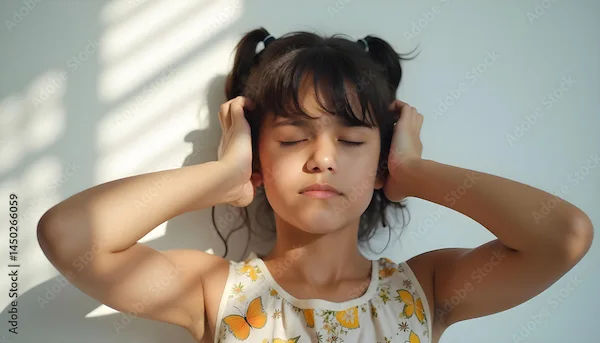World Mental Health Day: Your Guide to Awareness & Action
World Mental Health Day on October 10 raises global awareness, challenges stigma, and promotes support for well-being. Learn its history, theme, importance, signs, strategies, and how you can make a difference.

Written by Dr. Dhankecha Mayank Dineshbhai
Reviewed by Dr. Shaik Abdul Kalam MD (Physician)
Last updated on 13th Jan, 2026

Introduction
Every year on October 10, the world unites under a common banner to observe World Mental Health Day. But this day is far more than a date on a calendar; it is a powerful global movement. It is dedicated to raising awareness, tackling the stigma that still surrounds mental health, and mobilising efforts to support the well-being of people everywhere. In a world that often prioritises physical health, this day serves as a crucial reminder that our minds deserve equal attention, care, and compassion.
This guide explores the significance of the day, explains its origins and themes, highlights why it matters, and equips you with practical strategies to nurture your mental well-being while supporting others.
What is World Mental Health Day? A Global Initiative
World Mental Health Day is an international programme for global mental health education, awareness, and advocacy against social stigma. It was first celebrated in 1992 at the initiative of the World Federation for Mental Health (WFMH), a global organisation with members and contacts in more than 150 countries. The day provides an opportunity for those working on mental health issues to share their work and identify what more must be done to make mental health care a reality for all.
The History: How It All Began
The day began without a specific theme, with the simple aim of promoting advocacy and public education. In 1994, under the guidance of then-Secretary General Eugene Brody, a theme was introduced for the first time: Improving the Quality of Mental Health Services throughout the World. Since then, an annual theme has been announced by the WFMH to focus attention on pressing issues and unite global messaging.
Consult Top Doctors for Personalised Advice
Why This Day Matters: Breaking Stigma and Building Hope
In today’s fast-paced and hyper-connected world, mental health challenges are more common than ever, yet they often remain hidden in silence. World Mental Health Day helps bring these issues into open discussion, fostering understanding, compassion, and action.
The Global Burden of Mental Health Conditions
Mental health conditions affect millions worldwide. The World Health Organization (WHO) reports that one in every eight people lives with a mental health condition, with depression ranking as a leading cause of disability. Anxiety disorders are widespread too. Despite this, resources are scarce—globally there are only around 13 mental health workers for every 100,000 people. These figures underline the importance of dedicating a day to draw attention to the scale of the problem and advocate for stronger investment in mental health.
The Power of Speaking Up: Normalising the Conversation
Stigma remains the single greatest barrier to seeking help. It fuels discrimination, fear, and silence. By dedicating a day to open conversation, the stigma is gradually dismantled. When leaders, colleagues, friends, and family speak openly about their experiences, it sends a reassuring message: you are not alone. This shift towards openness is crucial for creating environments where people feel safe to seek help.
Recognising the Signs: In Yourself and Others
Awareness begins with recognition. Mental health struggles often reveal themselves through changes in emotions, behaviours, and physical health. Learning to identify these signs can make a critical difference in seeking timely support.
Common Symptoms of Mental Health Struggles
Some common signs may appear across emotional, physical, and behavioural levels:
• Emotional: Persistent sadness, hopelessness, excessive fears, mood swings, or irritability.
• Physical: Low energy, disrupted sleep (insomnia or oversleeping), changes in appetite or weight, unexplained aches.
• Behavioural: Withdrawing socially, losing interest in activities, neglecting responsibilities or personal care, or increased use of substances.
The Difference Between Everyday Stress and a Mental Health Condition
Everyone experiences stress, but it is important to recognise when it becomes something more serious. Everyday stress is usually temporary and manageable, whereas mental health conditions are prolonged, overwhelming, and disruptive to daily life. If symptoms persist beyond two weeks and interfere with work, relationships, or self-care, it may be time to seek professional evaluation.
How to Prioritise Your Mental Wellbeing: Practical Strategies
Looking after your mental health is as essential as caring for your physical health. A proactive approach with practical strategies can help build resilience and improve overall well-being.
Building a Mental Health Toolkit: From Mindfulness to Movement
Your mental health toolkit can include a variety of simple, effective practices:
• Mindfulness and Meditation: Guided meditations can calm the mind and improve focus.
• Physical Activity: Exercise releases endorphins, boosting mood and reducing anxiety.
• Connection: Maintaining strong relationships provides essential emotional support.
The Role of Nutrition and Sleep in Mental Fitness
What you eat and how you sleep directly affect mental health. A balanced diet rich in whole foods, fruits, vegetables, and omega-3 fatty acids supports brain function, while processed and sugary foods can worsen symptoms of anxiety or depression. Sleep is equally vital, as chronic deprivation can intensify mental health struggles. Prioritising consistent, quality rest is one of the best ways to support your mental well-being.
How to Support Someone Else: A Guide for Friends and Family
Being there for someone experiencing mental health difficulties can make a profound difference. Support should be empathetic, respectful, and free from judgment.
What to Say (and What Not to Say)
Helpful phrases
“I’ve been worried about you.”
“I’m here to listen if you want to talk.”
“How can I support you right now?”
Unhelpful phrases
“Snap out of it.”
“Everyone feels stressed.”
“Just think positive.”
The Art of Active Listening Without Judgment
The most powerful support often comes from listening. Give the person your full attention, avoid interruptions, and reflect back what you hear. Validating their feelings shows empathy and understanding. Encouraging professional help when needed—and offering to assist in finding resources—can also be invaluable.
Taking Action Beyond October 10
The true value of World Mental Health Day lies not only in raising awareness but also in inspiring ongoing commitment throughout the year.
Advocating for Mental Health in Your Community
You can contribute by supporting workplace initiatives, volunteering with local charities, or sharing reliable information to combat misinformation. Even small actions, such as checking in on a friend, contribute to breaking the silence around mental health.
The Crucial Role of Professional Help
Self-care strategies are useful, but professional support is often necessary. Psychologists, psychiatrists, and counsellors can provide therapies and treatments tailored to individual needs. Seeking help should be seen as an act of strength and responsibility towards oneself.
Conclusion: Moving Forward Together
World Mental Health Day is a reminder of our shared responsibility to recognise and support mental well-being. It calls on us to examine our own mental health, extend compassion to others, and dismantle the stigma that still surrounds these issues. Beyond October 10, let this awareness shape our daily actions—whether by listening without judgment, encouraging open conversations, or advocating for better resources. Together, we can foster a world where mental health is understood, valued, and protected as a universal human right.
Consult Top Doctors for Personalised Advice
Consult Top Doctors for Personalised Advice

Ms Rajashree Navthale
Psychotherapy & Counselling (ASM)
8 Years • MA in Counselling & Psychotherapy, PG Diploma in Counselling & Psychotherapy.
Akola
Connect Counselor, Akola

Miss. Vaishnavi Sankeshwar
Psychologist
5 Years • Msc Clinical Psychology
Bengaluru
Apollo Clinic, JP nagar, Bengaluru

Ms. Sapna Zarwal
Psychologist
20 Years • Msc (Applied Psychology), Ph D ( Special Education)
Gurugram
SOOTHING ZEN, Gurugram
(25+ Patients)

Ms. Gunjan Arya
Psychologist
4 Years • MA Psychology
Delhi
Psych Therapy By Gunjan Arya, Delhi

Ms. Monalisa Kha Bhaduri
Psychologist
12 Years • MA Psychology
Kolkata
Ms Monalisa Kha Bhaduri's Clinic, Kolkata
(275+ Patients)
More articles from Mental Health
Frequently Asked Questions
Q1. What is the symbol for World Mental Health Day?
Q2. How can I participate if I am not ready to share my story?
You can support by sharing resources, wearing a green ribbon, educating yourself, or simply reaching out to someone you care about.
Q3. Are free mental health resources available?
Yes. Many countries offer free, confidential helplines. The WHO and other organisations provide extensive free educational materials online.
Q4. What is the difference between a psychologist and a psychiatrist?
A psychologist usually provides therapy and behavioural support, while a psychiatrist is a medical doctor who can prescribe medication in addition to offering therapy.
Q5. Can children and teenagers experience mental health conditions?
Yes. Mental health conditions can affect people of any age, and many begin in adolescence. Changes in behaviour or mood in young people should be taken seriously.




